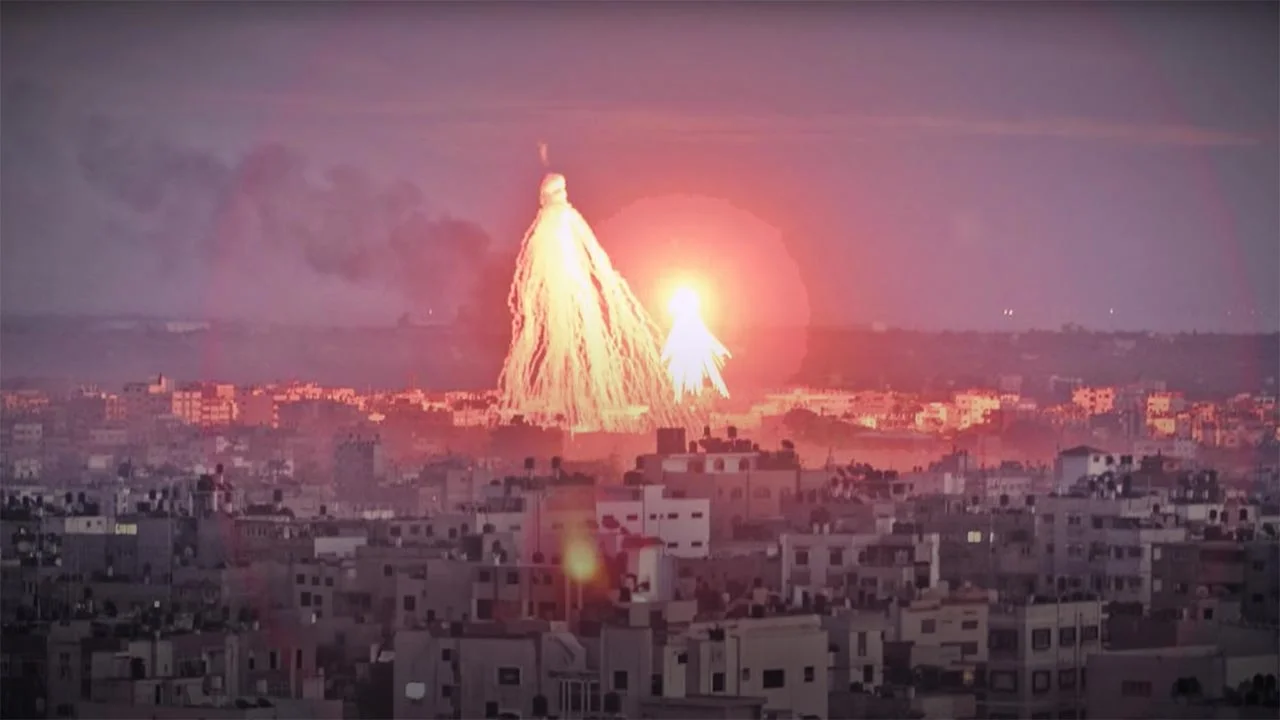The Israel-Palestine conflict has long been a source of tension and conflict, resulting in periodic flare-ups and devastating consequences for both sides. Amidst this ongoing strife, allegations of Israel employing internationally banned white phosphorus bombs in the Gaza Strip have raised serious concerns among international observers. This article will explore the claims and the broader context surrounding this controversial issue.
The use of white phosphorus in warfare is highly controversial, as it can cause severe burns, asphyxiation, and other life-threatening injuries. The Geneva Conventions and other international treaties strictly regulate its use to minimize harm to civilians. White phosphorus, when used in densely populated areas like the Gaza Strip, has the potential to cause significant collateral damage and civilian casualties.
Accusations that Israel has used white phosphorus in the Gaza Strip are not new. Similar allegations were made during the 2008-2009 and 2014 conflicts. In both instances, Israel faced international scrutiny and criticism, with some reports confirming the use of white phosphorus munitions in Gaza.
Israel’s Response
Israel has consistently denied accusations of using white phosphorus indiscriminately or in violation of international law. The Israeli Defense Forces (IDF) argue that they use white phosphorus in accordance with international regulations and only for specific operational purposes, such as creating smokescreens for the protection of their soldiers.
The IDF claims that when using white phosphorus, they take precautions to minimize harm to civilians and have the ability to deliver precise strikes to avoid civilian areas. However, critics argue that the chaotic nature of armed conflicts makes it difficult to guarantee that such munitions won’t harm non-combatants.
International Response
The use of white phosphorus in any conflict raises concerns, but in the context of the Israel-Palestine conflict, it draws particular attention. Countries, international organizations, and non-governmental entities have been quick to condemn any use of white phosphorus that results in harm to civilians.
The international community, including the United Nations, has called for investigations into the alleged use of white phosphorus in Gaza and urged all parties involved to adhere to their obligations under international humanitarian law. In cases where violations are confirmed, there are calls for accountability and potential war crime investigations.
The Broader Context
The Israel-Palestine conflict is a deeply rooted and complex issue, characterized by a history of territorial disputes, violence, and human suffering. The use of white phosphorus, while a significant concern, is just one aspect of the broader conflict. To achieve a lasting solution, it is crucial for both sides to engage in meaningful negotiations, supported by the international community.
Allegations of Israel using internationally banned white phosphorus bombs in the Gaza conflict are a deeply troubling aspect of the ongoing Israel-Palestine conflict. These claims have triggered international concern, and the international community has called for investigations into their use. However, it is essential to remember that addressing this issue is only one small part of the larger, deeply rooted-conflict. Achieving peace and stability in the region will require concerted efforts, dialogue, and a commitment to upholding international law from all parties involved.




